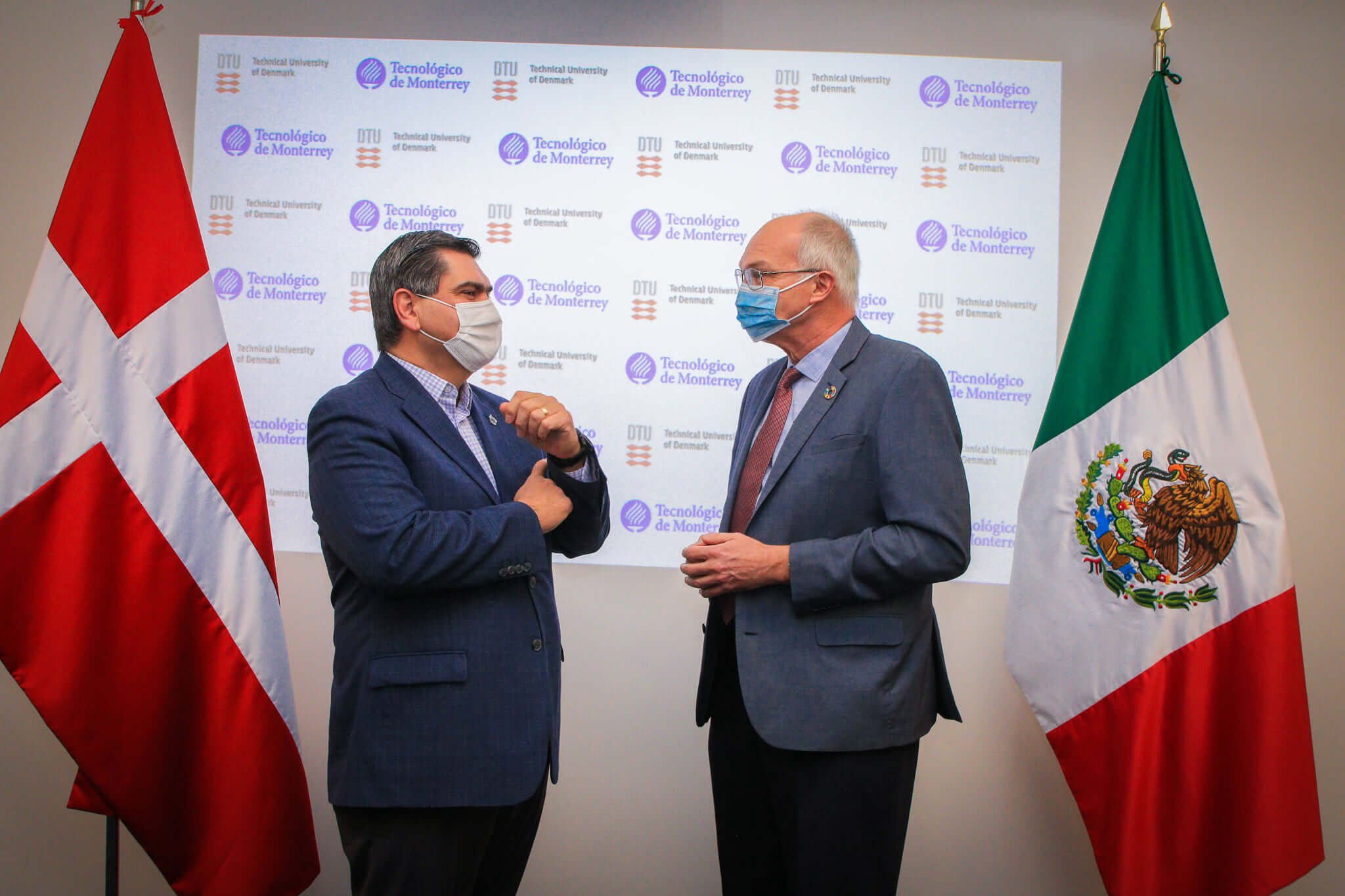Tec and the Technical University of Denmark (DTU) strengthened their ties by allowing teachers and students from both universities to exchange and work on joint projects.
Developing joint research, innovation projects, and opening participation to professors, undergraduate and postgraduate students, are among the benefits of the agreement between Tec de Monterrey and the Technical University of Denmark (DTU). David Garza, Rector and Executive President of Tec, along with Anders Bjarklev, President of DTU, signed the agreement in a ceremony held on the Mexico City Campus of Tec de Monterrey.
“In my beginning as Rector, I commented that I wanted to promote the three ‘i’s- investigation, innovation, and internationalization. With the signing of this agreement, I see these embodied. It is an honor to collaborate with an institution of such prestige as DTU,” Garza said. For his part, Bjarklev, President of DTU, said that the philosophy of Tec de Monterrey aligns with the institution he represents. “I see that there are specific areas of different technologies where we can benefit the future of our students. DTU can receive much knowledge from Tec, and we hope to do it ourselves equally, to boost our countries,” he said.
Collaboration and fundraising
José Manuel Páez, the Tec Vice-Rector for Internationalization, explained the collaboration between Tec and DTU. “It expands the relationship we have had in opportunities for the international experiences of our professional students, elevating to include teaching staff to work on joint projects,” Páez described. The Vice-Rector highlighted that the agreement would allow Tec professors to work with high-level teachers. “We are talking about research on an international scale, something very prominent. These are agreements that we only make with certain types of universities,” he said.
Another important aspect of this alliance is a unique joint fundraising strategy to support researchers from both educational institutions. This strategy, said the Vice-Rector, will allow research works related to engineering, sciences, and health to advance or solidify.
Tec and DTU: a relationship with history
Tec and the Technical University of Denmark have 15 years of student exchange collaboration; from 2018 to date alone, more than 40 students from DTU have studied at Tec, while more than 80 Tec students have attended the Danish institution. Also, since 2018, student research stays in science and engineering have taken place. Among projects that have been researched are those related to sustainable applied biotechnology, nanosensors and devices, bioprocesses and synthetic biology, sustainable energy, biotechnology and biomedicine, and civil engineering.
DTU is among the top 50 universities in Europe according to the QS World University Ranking. In 2018, the Vice-Rectory for Internationalization opted for the relationship with DTU by choosing this university as one of Tec’s representative offices abroad, exposing it to the radar of other universities in the Nordic region. This office will continue to strengthen collaboration in the initiatives that derive from this new strategic stage of cooperation, Paéz said.
Tec student projects presented
José Carlos Miranda, Dean of the School of Engineering and Sciences in Tec’s Mexico City Region, shared his impressions about the visit of DTU President Anders Bjarkler. “I think the visit was beneficial because we had the opportunity to present to the President of DTU different research projects carried out by professors working with professional and postgraduate students. He saw many intersections between our research and what is done at DTU. This motivates us because DTU is one of the most important research universities in Europe and speaks to the level of research that we conduct at Tec,” said Miranda.
Students from the Schools of Engineering and Architecture, Art and Design presented some projects that they have been developing. Among them were the intelligent electric car created by graduate students and a presentation of Nao robots and the robot named “Robocov,” which can perform specific tasks, such as disinfection and detecting the use of masks, among others.
Translation by Daniel Wetta.
This article from Observatory of the Institute for the Future of Education may be shared under the terms of the license CC BY-NC-SA 4.0 
)
)

)